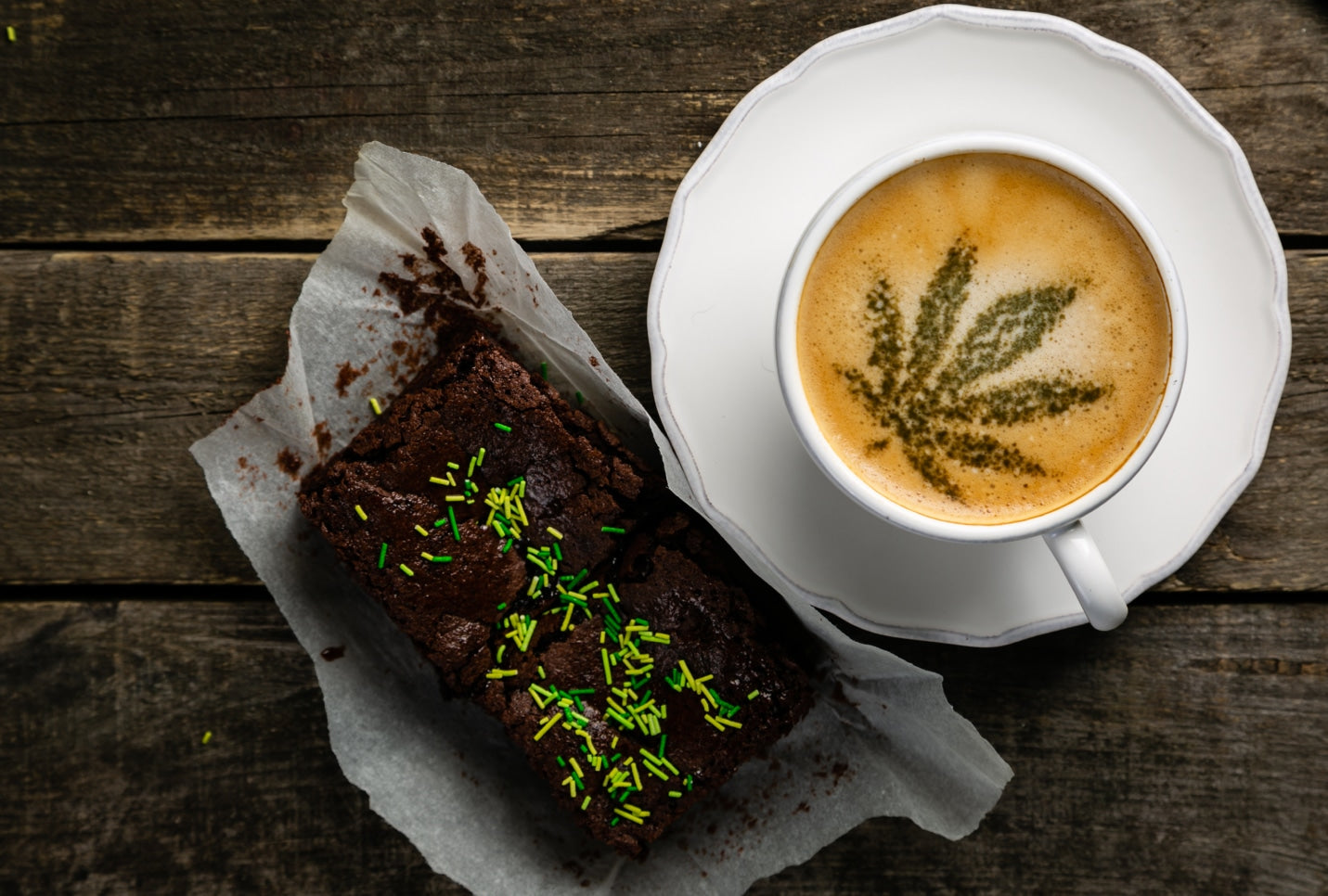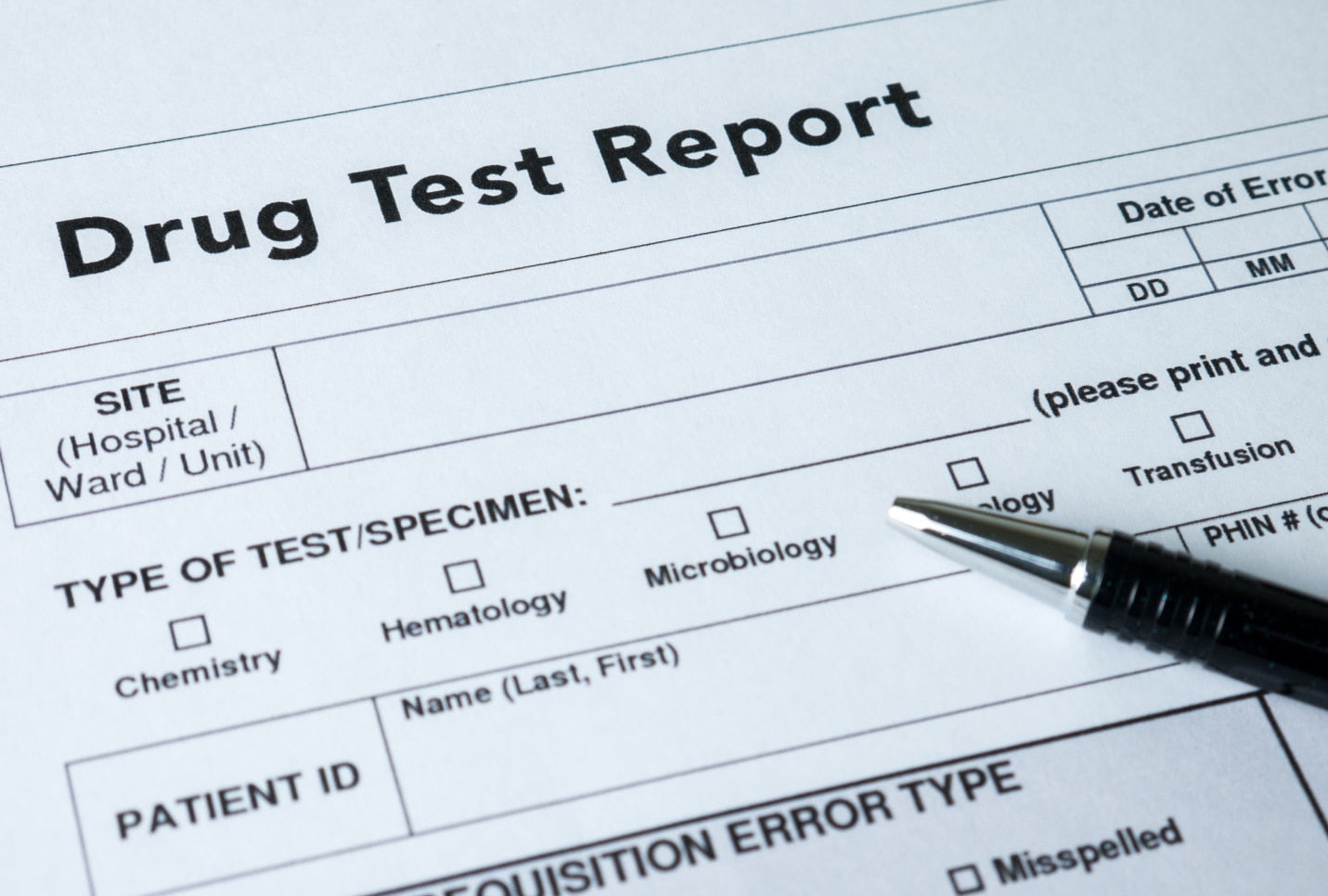|
More and more people are incorporating CBD products into their daily routines, be it CBD oil, soothing CBD topicals, tasty CBD gummies, or versatile CBD tinctures.
This popular cannabinoid is revered for its wealth of potential wellness benefits. But, if you’re dipping your toes into the world of CBD, there’s an important question you may be asking — does CBD use have any implications for drug tests?
We’re here to give you the answers, helping you navigate the CBD world with confidence. Let’s dive in.
What Is CBD?

Before we proceed, let's start at the beginning. Cannabidiol, or CBD, is one of the many compounds found in Cannabis sativa and is particularly abundant in the hemp plant.
Both the cannabis plant and hemp plant contain numerous substances called cannabinoids, with the most famous ones being CBD and THC (tetrahydrocannabinol). However, there's a crucial difference between these two.
THC is the psychoactive compound responsible for the "high" associated with cannabis. On the other hand, pure CBD is non-psychoactive, meaning it doesn't make you feel high or intoxicated.
How Does CBD Work?
Okay, now that we know more about this phytocannabinoid, how does it actually work within the body?
Understanding how CBD works starts with the endocannabinoid system (ECS). The ECS, an intricate communication network of receptors present in our brains, immune cells, organs, connective tissues, and glands, plays a pivotal role in maintaining our bodies' internal balance, or homeostasis. It helps regulate essential functions such as pain sensation, mood, sleep, immune response, and more.
The ECS operates through three core components:
-
Endocannabinoids: Endocannabinoids are naturally produced compounds that resemble plant-derived cannabinoids like CBD.
-
Cannabinoid Receptors: These endocannabinoids bind to receptors known as CB1 and CB2 receptors, which are present throughout the body and are especially concentrated in the brain and immune system.
-
Enzymes: Once endocannabinoids have served their purpose, the body’s enzymes step in to break them down.
CBD's role comes into play here. While CBD doesn't bind to these receptors in the way THC does, it interacts with the ECS, enhancing its functions and helping the body use its endocannabinoids more effectively.
Through these interactions, CBD might assist the ECS in maintaining the body's internal balance, thereby potentially helping you feel balanced through everyday stress, encouraging calmness, supporting restful sleep, and supporting overall wellness.
What Are the Different Types of CBD?
CBD comes in various forms, including CBD isolate, full spectrum CBD, and broad spectrum CBD.
-
CBD isolate: This is considered the purest form of CBD, with all other cannabinoids, terpenes, flavonoids, and plant parts removed.
-
Full spectrum CBD: Full-spectrum CBD extract includes all of the plant parts — the cannabinoids, terpenes, flavonoids, and fatty acids — found in the hemp plant, including trace amounts of THC.
-
Broad spectrum CBD: Broad-spectrum CBD, on the other hand, contains all of the hemp plant’s range of compounds except for THC.
What Is the Entourage Effect?
Terpenes, flavonoids, and minor cannabinoids play an essential role in enhancing the potential benefits of CBD products, contributing to what's known as the entourage effect. This can take place when the naturally occurring plant parts work in tandem.
THC can also contribute to the entourage effect. However, the amounts of THC in different types of CBD can vary. While full-spectrum CBD products can have trace amounts of THC (up to 0.3 percent, as per federal regulations), some products are labeled as THC-free. These are typically made from CBD isolate or broad-spectrum CBD.
What Do Drug Tests Test For?
If you're a CBD user facing a drug test, it's essential to understand what these tests are looking for. Contrary to popular belief, drug tests typically aren't screening for CBD — they're most interested in detecting metabolites of THC.
So, how do these tests work? Generally, they're designed to detect certain substances or their metabolites — byproducts produced when the body processes these substances. In the case of cannabis-related drug tests, they're primarily looking for metabolites of THC, the psychoactive component.
The term “metabolites” refers to substances produced by the body when it breaks down drugs — in this case, THC. These metabolites can remain in the system for some time, and their presence indicates recent use of THC-containing substances. So, when a drug test is administered, they're primarily checking if there's evidence of THC use.
What Are the Different Types of Drug Tests?
With the rising popularity of CBD, many individuals face questions regarding drug screening. These screenings are commonly conducted in the workplace, in sports, or during medical examinations, aiming to maintain a safe and productive environment.
There's a variety of drug tests out there. The most common type is the urine drug test, which analyzes a urine sample for the presence of specific metabolites. However, hair tests, blood tests, and saliva tests can also be used, each with different detection windows and cut-off levels.
For instance, urine tests typically detect THC metabolites for up to a week after use, whereas hair tests might detect use for up to 90 days. Cut-off levels, the minimum amount of a substance required to trigger a positive result, also vary by test type.
Can CBD Show Up on a Drug Test?
This brings us to the pivotal question — can using CBD lead to a positive drug test result? The short answer is that it's unlikely but possible.
Here's the deal. Drug tests are designed to detect THC, not CBD. However, given that some CBD products made from full spectrum CBD contain trace amounts of THC, there's a slim chance that these amounts might accumulate and trigger a positive test result.
Moreover, there's also the risk of a false positive result. This can occur due to factors like cross-contamination during the manufacturing process, leading to higher THC levels in the product. Or it could simply be a consequence of the test's sensitivity and the cut-off levels used.
Is CBD Legal?
While we're discussing CBD and drug tests, it's crucial to address the legal status of CBD. In the United States, the Food and Drug Administration (FDA) regulates CBD and hemp-derived CBD products. As per the 2018 Farm Bill, hemp-derived CBD products are legal at the federal level as long as they contain no more than 0.3 percent THC.
This 0.3 percent THC limit is an important consideration. CBD products that abide by this rule are generally less likely to result in a positive drug test. But remember, product quality can vary, and the actual THC content can sometimes exceed what's stated on the label.
That's why the Certificate of Analysis (COA) becomes vital. It's an official document that confirms the levels of various cannabinoids, including THC, in a CBD product. It also shows whether the product has been tested for contaminants like heavy metals or pesticides.
So, before purchasing any CBD product, make sure to check the COA to ensure it complies with federal regulations and offers transparency about its contents.
How To Mitigate the Risk of a Positive Drug Test When Using CBD
With the growing acknowledgment of CBD's potential benefits, you may be keen to explore this wellness product. However, it's essential to balance that enthusiasm with a prudent approach, especially if you're subject to drug testing.
So, how can you reduce the risk of getting a positive drug test result? Let’s break it down.
Consider the Type of CBD Product
As you embark on your CBD journey, the first step is to carefully consider the type of CBD product you use. While full spectrum CBD oil containing less than 0.3 percent THC content is federally legal, in rare cases, an extremely sensitive drug test may still flag this small amount of THC.
Isolate products, on the other hand, are typically devoid of THC. They contain pure CBD and offer you the beneficial properties of this cannabinoid without as great a risk of a positive drug test.
Meanwhile, broad spectrum CBD products offer a richer experience, as they retain most of the cannabis plant's natural compounds without the presence of THC. This means you can reap the combined wellness benefits of CBD, terpenes, and flavonoids without worrying as much about the levels of THC.
Be Informed About Your CBD Source
Understanding the source of your CBD product is the next crucial step in your journey. Opt for trusted brands that place a high value on transparency and adhere to stringent production standards, like Muscle MX. This ensures the levels of THC in your product are as advertised and avoids potential cross-contamination issues.
A crucial tool to help with this is the COA. At Muscle MX, all of our third-party tested lab results are publicly available on our website.
Leverage the Benefits of Topicals
A helpful strategy for minimizing the risk of a positive drug test while still reaping the benefits of CBD is to use topical products. When applied to the skin, CBD topicals, like Muscle MX lotions and balms, can deliver targeted relief and are generally unlikely to be detected in a drug test. This makes them a great choice for individuals who need to undergo regular drug screening.
For More Generalized Support: Choose Wisely
For those seeking more generalized support from CBD, like easing stress or promoting better sleep, options like CBD oils or edibles are often the way to go. However, it's still vital to choose wisely. You may want to opt for broad spectrum products or isolates that have a solid COA.
Products like our broad spectrum gummies or Relax CBD Drops are excellent choices that provide an array of potential benefits without the THC.
Always Seek Medical Advice
Finally, it's vital to seek professional medical advice before starting your CBD journey, especially if you're subject to workplace drug tests or are on other medications. Healthcare professionals can provide personalized guidance based on your needs and circumstances and help you understand how CBD might interact with your health regime.
By taking these precautions and making informed choices, you can experience the benefits of CBD while minimizing the risk of a positive drug test. Enjoy your wellness journey with confidence, knowing you're making the best decisions for your health and lifestyle.
The Bottom Line
So, will CBD show up on a drug test? In most cases, it's extremely unlikely. However, depending on the type of CBD product used and its THC content, there's a slim chance it might influence the test results. That's why it's crucial to be informed about the types of CBD products, the source of your CBD, and its THC content.
In the end, it's about finding the right balance that suits your wellness journey. Whether you're exploring CBD oils, gummies, topicals, or any other CBD products, remember to do so responsibly. After all, we want your journey into the world of CBD to be as smooth, confident, and as beneficial as possible.
Sources:
Chemistry, Metabolism, and Toxicology of Cannabis: Clinical Implications | PMC
The endocannabinoid system: Essential and mysterious | Harvard Health
The Case for the Entourage Effect and Conventional Breeding of Clinical Cannabis: No “Strain,” No Gain | Frontiers
Farm Bill | USDA
|









































